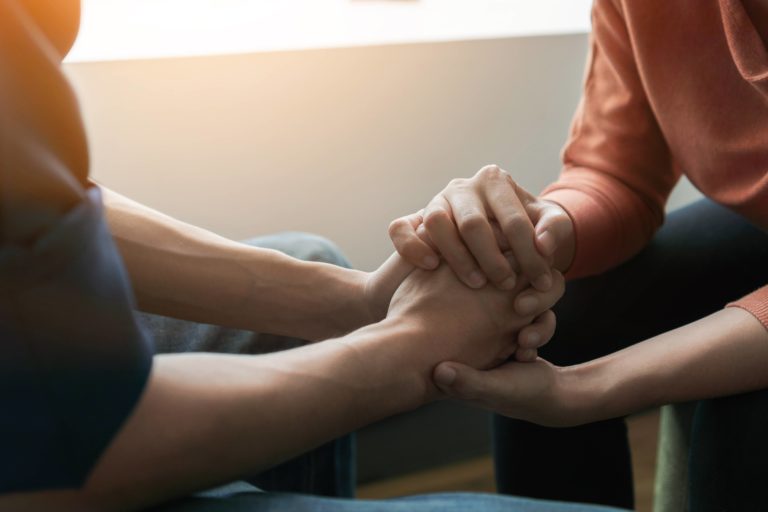Knowing what to pack for inpatient mental health treatment can help you get off to a good start with a smooth, stress-free check-in.
Why Inpatient Centers Have Rules About Packing
Before we discuss what to pack for inpatient or residential mental health treatment, let’s take a moment to address a common question that many people have: Why do treatment centers tell you what you can and can’t bring with you?
The two primary drivers of packing rules are health and safety:
Health
One of the many benefits of inpatient treatment is that you can step away from the stresses and pressures of everyday life, so that you can focus your full attention on your treatment and your health. Anything that distracts you from fully engaging in all aspects of your care can delay your progress and undermine your health.
Inpatient centers also want to be sure that you don’t bring items that can negatively impact the treatment experience for other patients, too.
Safety
For any reputable inpatient treatment center, the safety of patients, staff, and visitors will be a top priority. Centers go to great measures to maintain a safe and supportive environment for everyone, which includes ensuring that patients don’t bring items with them that can be harmful to themselves or others.
Some items are banned because they can intentionally be used as weapons, while others are prohibited because they could be a source of accidental injuries. Also, anything that could trigger a person’s symptoms or push them into relapse cannot be allowed.
What to Pack for Inpatient Mental Health Treatment
Now that we’ve established why centers have rules about patient possessions, let’s turn our attention toward what to pack for inpatient mental health treatment.
Before we jump into this topic, though, it’s important to emphasize that the list we’ve developed includes the types of items that inpatient mental health centers often advise patients to bring with them. Before you enter treatment, you should receive a list from your center that details exactly what you should pack.
With that in mind, here’s what a typical packing list for an inpatient mental health center might look like:
- Three or four days’ worth of comfortable clothing, including underwear and socks. Centers provide laundry services, so you won’t need to bring a new set of clothes for every day you’ll be in treatment.
- Shower shoes, slippers, and a pair of comfortable shoes. Some centers require shoes to either be slip-ons or have Velcro closures, as shoelaces could be weaponized.
- A sweater, a sweatshirt, or a light jacket (like a windbreaker).
- Hairbrush, toothbrush, and other personal hygiene items. As we’ll mention again in the next section, you shouldn’t bring hygiene items that contain alcohol (such as some mouthwashes) or are either made of or stored in glass.
- A small amount of cash. Many inpatient treatment centers have vending machines that patients can use to purchase snacks during approved leisure hours.
- A few photos of your loved ones. It’s never a bad idea to be reminded of the people that you care about (and who care about you).
Items You Shouldn’t Bring to Inpatient Mental Health Treatment
Due to the aforementioned health and safety concerns, the list of prohibited items is usually longer than the list of what you can bring with you to a mental health treatment facility. Centers typically also reserve the right to confiscate items that aren’t on their prohibited list, but which can threaten patient progress and safety.
Again, this is a sample list of items that treatment centers typically bar patients from bringing with them:
- Clothing that is revealing or that contains references to alcohol, drugs, and other inappropriate topics.
- Outside food or beverages.
- Electronics and internet-accessible devices. This category may include radios, televisions, cell phones, tablets, laptops, and portable music players.
- Alcohol and other drugs. This includes items such as mouthwash that may contain alcohol, as well as pipes, vapes, and other paraphernalia.
- Candles, matches, lighters, or any other objects that could present a fire hazard.
- Sharp objects, or objects that could be adapted to become sharp. This includes scissors, knives, mirrors, and glass bottles.
- Pillows, blankets, and other bedding.
- Too much money. The center you’re attending should inform you of the maximum amount you are allowed to have while you’re in treatment.
- Jewelry. You may be permitted to wear a small amount of jewelry, such as a wedding ring, but this will depend on the policies of the facility where you’ll be receiving care.
Some inpatient treatment centers permit patients to use tobacco products in certain areas of the facility at specified times. Others prohibit all cigarettes, cigars, pipes, and smokeless tobacco.
If you smoke, you will want to confirm your center’s policy before you arrive for treatment. If the center doesn’t allow smoking, they may offer smoking cessation classes to help you quit while you’re receiving treatment.
Also, different facilities have different policies about prescription medications. Some centers may allow you to bring sealed, unopened containers of prescription medications with you, along with documentation that proves that the medication is yours. Others may request copies of your prescriptions, so they can be filled through the center’s on-site pharmacy.
Learn More About Inpatient Mental Health Treatment in Nashville
If you think you can benefit from inpatient mental health treatment, Arbor Wellness may be the ideal place for you. Our mental health treatment center in Nashville, Tennessee, offers a full continuum of customized care within a safe and highly supportive environment.
We treat adults who have anxiety, depression, bipolar disorder, posttraumatic stress disorder (PTSD) and a variety of additional mental health concerns. We also offer dual diagnosis services to patients whose mental health struggles are accompanied by addictions to alcohol and other drugs.
To learn more about our programming, or to schedule a free assessment for yourself or a loved one, please visit our Admissions page or call us today.










